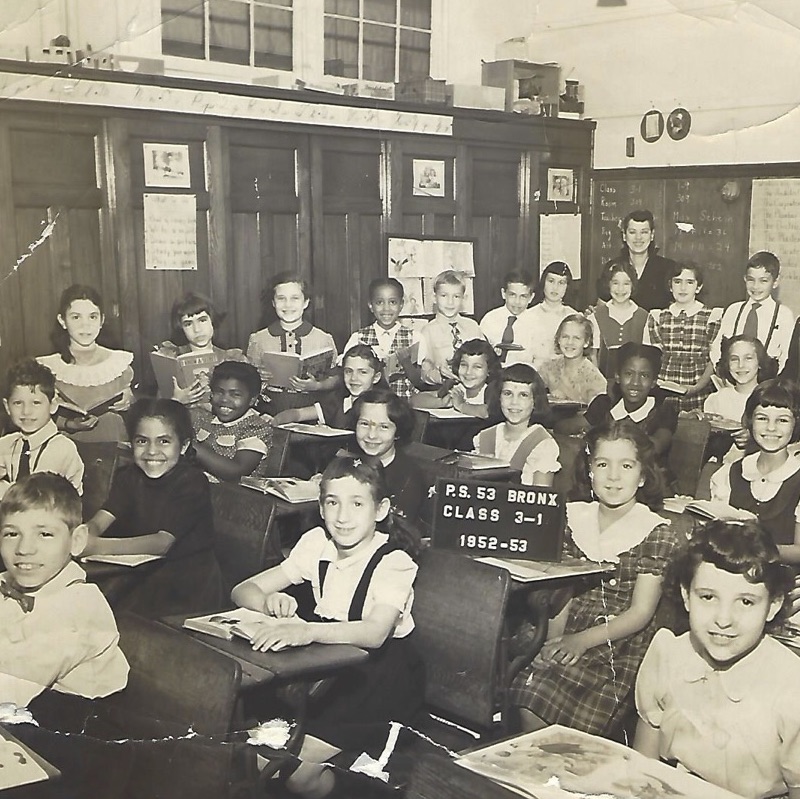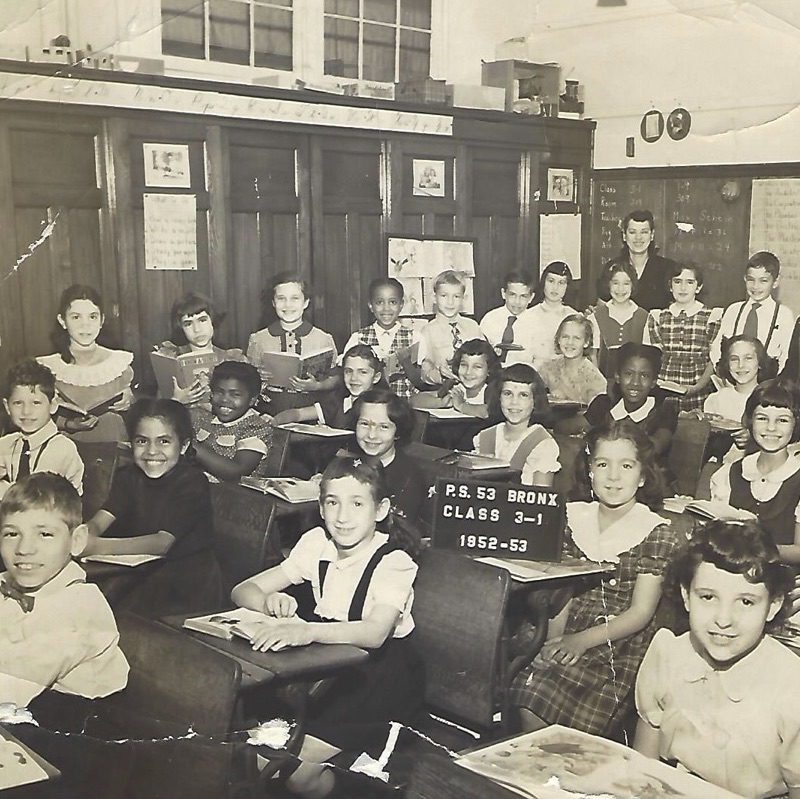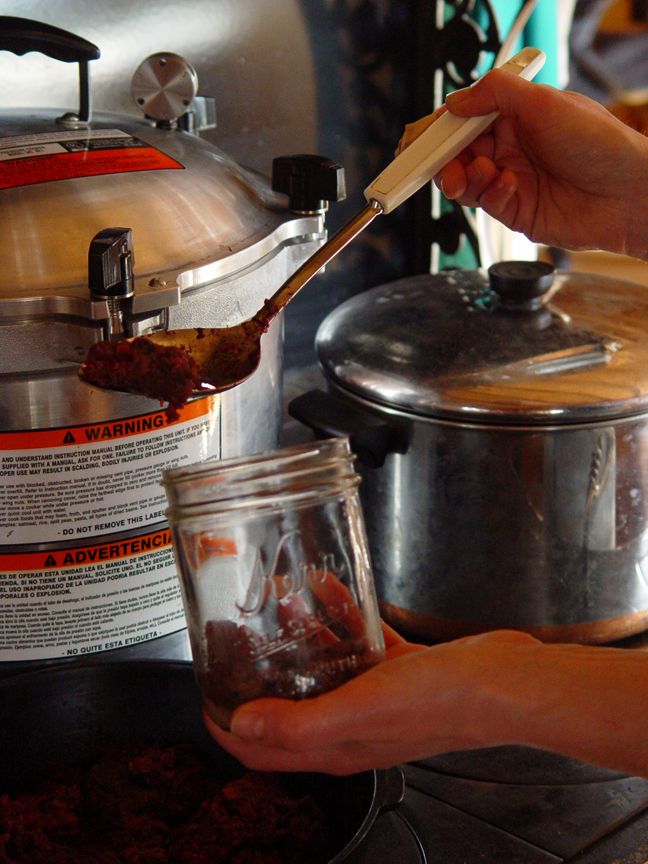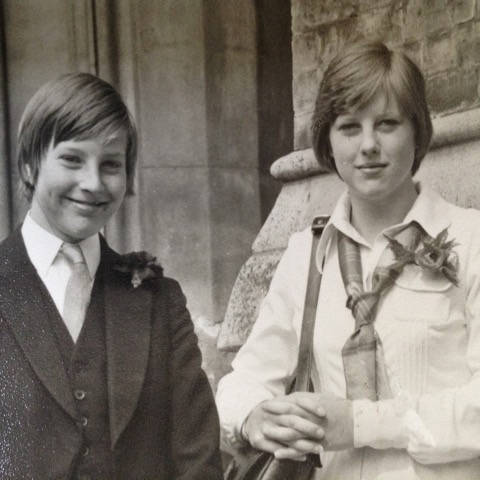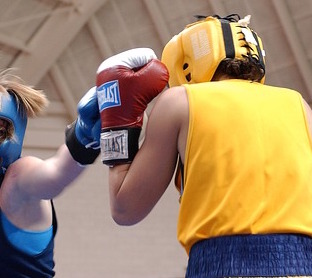The year was 1953; we lived in the South Bronx. Even then it was not exactly the best place to raise children. City housing projects were going up around us. Two-family homes like ours, across from the majestic turrets of Morris High School, were being razed and replaced by cold, imposing obelisks. Towering over us, they seemed to invade the sense of community of our block of neat, yet worn, brick row houses—our Jackson Avenue. The stoops that jutted out from each building were endless spiraling staircases to castles in the imaginings of the young school girl that I was.
Almost fifty years later I still have vivid memories of people on the block. The O’Garas resided next door. The DeZelles, our landlords, lived below us and sometimes let us play in their backyard—that oasis of grass and greenery in a world of pavement an asphalt. And there was “Spicky,” a close friend of my mother, whose nickname was affectionately given because of her Hispanic look in a predominantly black environment.
Neighbors would often comment to my parents that they took such good care of all four of us kids—Mario Jr., two years my senior, Rick and Tony, my younger brothers and me, Bonita. My father dubbed me “Bonnie Braids” after the Dick Tracy cartoon character found every Sunday in the New York Daily News. I was very proud of the comparison, and of my long shiny black braids.
As the grown-ups congregated on the stoops and sidewalks on Jackson Avenue, the activities and games of the children readily spilled out into the street. I played stoopball, stickball, skelly, ring-a-leevio and double-dutch with my brothers and the kids on the block—Marjorie, Valerie, Marva, Calvin, Junie and Peppy and Gary, who were brothers.
My parents decided to take us out of P.S. 63, our local elementary school, which fell short of providing us with the academic environment they deemed suitable. Mario and I were slated to attend school “out of the district,” a common practice then for the upwardly mobile. Using a friend’s address in a better area, 1062 Teller Avenue, they enrolled us at P.S. 53. With bus passes in hand, my older brother Mario (then in 5th grade) and I embarked on a journey to a better education.
That’s where I met Wymona Craft, who was called “Mona” by her friends and family. She was brown-skinned, much plumper than my ninety-five pounds, and wore round tortoise-shell eyeglasses. It was the glasses that endowed her with an intellectual aura that attracted me to her. Mona’s coarse, kinky hair was always super-neat with bright color barrettes and bow ribbons that held her braids in place. She and I both wore plaid dresses with Peter Pan collars and bows that tied in the back, very much the style for schoolgirls at that time.
In my estimation, Mona was a very talented artist—always sketching people of no particular color in profile with her own distinctive style. Their faces looked very much like the brackets in an English class outline used to group similar ideas together. She drew a single upturned comma for the mouth. I, too, could draw well, but preferred and tried to mimic Mona’s style.
As it turned out, Mona lived around the corner from us on Home Street. Often Mario and I would meet her at the bus stop to head off to school each morning. She, like us, had to keep the “secret” of a bogus address.
We had to walk up a precipitous hill from the bus stop to P.S. 53, our bodies pitched forward at a sixty-degree angle. Every morning we would mill about the playground until the din of the cowbell summoned us into the building. Not all those responding to the bell, however, were obedient lambs like Mona and me.
Very few children of color attended this school and even at such a young age, I was aware that the white teachers marveled at the abilities of pupils like Mario, Mona and me. Mona and I both excelled in Mrs. Margolis’ third grade class and were classmates again and fast friends by the time we were in Mrs. McCain’s fourth grade class. We frequently visited one another’s homes, drawing together and working on our stamp collections. I was an egg cream with extra chocolate syrup when I was with Mona.
After dismissal from school, I usually met Mario at the bottom of the hill. He would walk me across the wide traffic-laden street to the bus stop for the ride home—my mother’s strict instructions to us both. I looked forward to going into Edelman’s Bakery on the corner where we waited for the bus. Mario and I sometimes bought a special treat there—black and whites—for our ride home.
Things changed drastically one afternoon after dismissal from school. As Mona and I chatted busily and laughed together, clutching our briefcases laden heavily with textbooks and looseleafs, a group of about four hard-looking girls, “colored” like us, with mean eyes encircled us. We knew them by sight only and always tried to avoid them on the playground during recess.
The one who appeared to be the ringleader terrified me as she yanked my pigtails causing my bow ribbons to come undone. She shouted right up close to my face, “You think you’re somethin’ special, you skinny Puerto Rican with your good hair. You think you’re cute ‘cause you get good grades and all!”
In those days, anyone of Hispanic descent was called a “Puerto Rican.” My mother, Lorraine, was black, of West Indian descent, and my father, Mario Sr., was Honduran.
As this queen of intimidation waited for me to say something, I stood mute and totally vulnerable. She released my hair after giving my braids several more hard tugs. I winced and whispered, “Ouch.” Internal tremors rocked any resolve I might have had. She glared her venom directly into my eyes and shoved me down on the rough surface of the sidewalk. I was mortified. Getting back up, I checked my knees; no skin was broken.
Then she and the others started in on Mona. Again, the same girl was the spokesperson, “And you, Four-Eyes, with that nappy hair—what do you have to say?” She pulled off one of Mona’s hair barrettes and slammed it down to the ground.
Mona, more courageous than I, replied, “Leave me alone! I didn’t do anything to you!” She kneeled to retrieve her barrette. They just laughed as her voice trembled and cracked.
Whirling in a pivot of power, the leader of the pack refocused her fury on me. “Ain’t this nappy-headed girl your friend? Ain’t she another one of Miss McClain’s teachers’ pets?”
Not wanting to, yet still—I denied Mona. I felt just like Judas that I had learned about in Sunday School at Trinity Church down the street from our house. “No; she’s just a girl in my class—that’s all. My brother is waiting down the bottom of the hill. I gotta go!” The words seemed to come from somewhere inside of me that I didn’t find familiar. I began to run down the hill, barely holding on to my heavy book bag, propelled by the gravitational pull of the steep incline. I did not look back even once to see if Mona escaped their menacing wrath.
Out of breath, I crossed the street with Mario. I said nothing to him about what had occurred at the top of the hill. I checked my knees again and re-tied my hair ribbons.
Mario said, “What happened to you?”
“Oh, I tripped when I was coming down the hill.”
“Where’s Mona?”
“I don’t know; I didn’t see her when the bell rang. She can always catch the next bus.”
“Well, if you’re all right, let’s get our black and whites!”
Wanting to get to a safe place far away from those girls and from Mona, I replied, “No, the bus is coming right now!” I was never so glad to see a New York City bus as it pulled up almost on cue.
The next day, I was relieved that Mona was not at the bus stop as Mario and I waited. I avoided Mona in class; luckily, we did not sit side by side. But after much hesitation, I finally mustered up enough pitiful courage to go over to her desk to ask her if she was okay. All she said to me was, “I’m fine,” and went back to her exercises in her arithmetic workbook.
From then on, when we did arrive at the bus stop at the same time, our interaction never went further than, “Hi” or “Hello.” I told Mario that we just weren’t best friends any more.
In my shame and embarrassment, I never told my mother that I had abandoned Mona; I never told anyone. At the end of the school year, my family packed up to move to Long Island. I didn’t even go over to Mona’s house to let her know.
Bonita Sanabria taught English in secondary schools for more than thirty years and is currently a substitute teacher at Ivy Preparatory Academy. She has volunteered for The National Black Arts Festival as the guest escort for Alice Walker and Maya Angelou. She also conducts seminars on anti-bullying strategies and conflict resolution for parents, teachers, and guidance counselors. Sanabria writes poetry, memoir, and short stories and lives in Atlanta.
